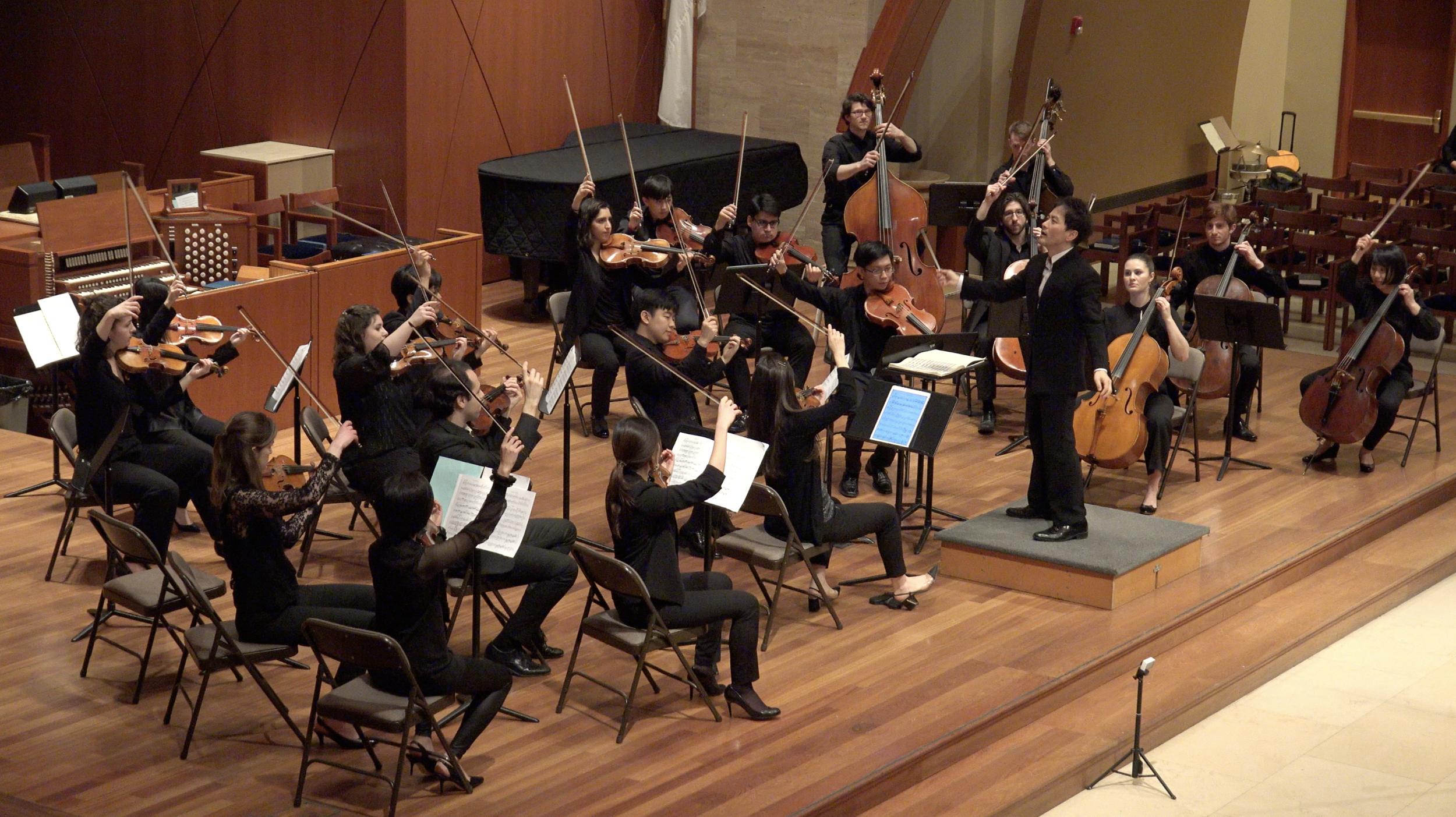Conductor: Dongmin Kim
Bach: Concerto for Violin in A minor, BWV 1041
Bach: Concerto for Oboe and Violin in C minor, BWV 1060
Elgar: Introduction and Allegro
Zimmerli: Concerto for Flute, Jazz Percussion and String Orchestra
Jasmine Choi, artist-in-residence/flute
Siwoo Kim, violin
James Austin Smith, oboe
A 10-year anniversary is unquestionably a cause for celebration. On the other hand, there’s really no need for a reason to go enjoy the high-quality, traditional and innovative, music that the decidedly unstoppable and endlessly versatile New York Classical Players have been generously bestowing for free upon the masses in New York City, California, South Korea and Bolivia for a decade now. And as far as I can tell, they’re fortunately not planning to stop anytime soon.
For the first concert of the year of their orchestral series, they stuck to their laudable mission of offering eclectic programs by combining two timeless works by Johann Sebastian Bach with more modern compositions by Edward Elgar and Patrick Zimmerli. Moreover, since they have always been open not only to all sorts of musical experiments, but to exciting collaborations as well, the NYCP had invited some distinguished guests to join them for some of the works, which made the entire endeavor even more attractive.
On top of it, their Manhattan concert of the weekend would take place at the W83 Concert Hall, which conveniently stands an easy walking distance from my apartment, on a mild February night. So there were really no reasons for me not to go. And, apparently, a lot of people had felt the irresistible pull of the invite too as the orchestra section had been sold-out for a while, and the balcony filled up quickly all the way throughout the opening piece.
And what an opening piece it was! Notorious for the challenging intricacy of his compositions, Bach does not make it easy on the players, but if you have the right ones, the rewards are totally worth the effort for musicians and audience. And that’s just what happened on Saturday night, when we had some of the best stringers in town fearlessly tackling the Baroque master’s brilliant Concerto for Violin in A minor. Concertmaster Siwoo Kim handled the solo part with his signature uncompromising exactness and natural appeal, and the orchestra backed him up flawlessly under the informed baton of maestro Dongmin Kim.
Because one can never hear too much Bach, Siwoo Kim came back and, this time, shared the spotlight with oboist James Austin Smith for Bach’s lovely Concerto for Oboe and Violin in C minor. Subtle yet assertive, the oboe beautifully added its own special colors to the more traditional ensemble of string players and harpsichord for a winning result that spoke both to the heart and to the mind.
After intermission, we moved forward from 18th-century Germany to 20th century England for Elgar’s ever-popular Introduction and Allegro. Although the influence of the concerto grosso form from the Baroque era was discernable, the boldly polyphonic symphonic poem resolutely took it to a whole other level, possibly because Elgar being a violinist of professional standard himself knew for sure his way around the instrument. The intensely lyrical yet exquisitely light-on-its-feet performance of the orchestra allowed the rest of us to happily revel into the sumptuous lushness of the composition.
Last, but by no means least, came the world premiere du jour in New York- and Paris-based saxophonist, composer, arranger, and record producer Zimmerli’s intriguing-sounding Concerto for Flute, Jazz Percussion and String Orchestra featuring artist-in-residence and world-renowned flutist Jasmine Choi as well as equally sought-after percussionist and arranger Satoshi Takeishi. Commissioned by the relentlessly boundaries-pushing New York Classical Players, the refreshingly inventive and effortlessly engaging 20-minute cross-over venture adroitly combined the rigorousness of classical music with the free spirit of jazz for a superbly virtuosic performance.
The ovation was so thunderous that Miss Choi came for a fun encore in Ian Clarke’s “The Great Train Race”, which enlightened and delighted the mesmerized audience by displaying in no uncertain terms some of countless possibilities of the flute, including the downright uncanny imitation of a train whistle.

